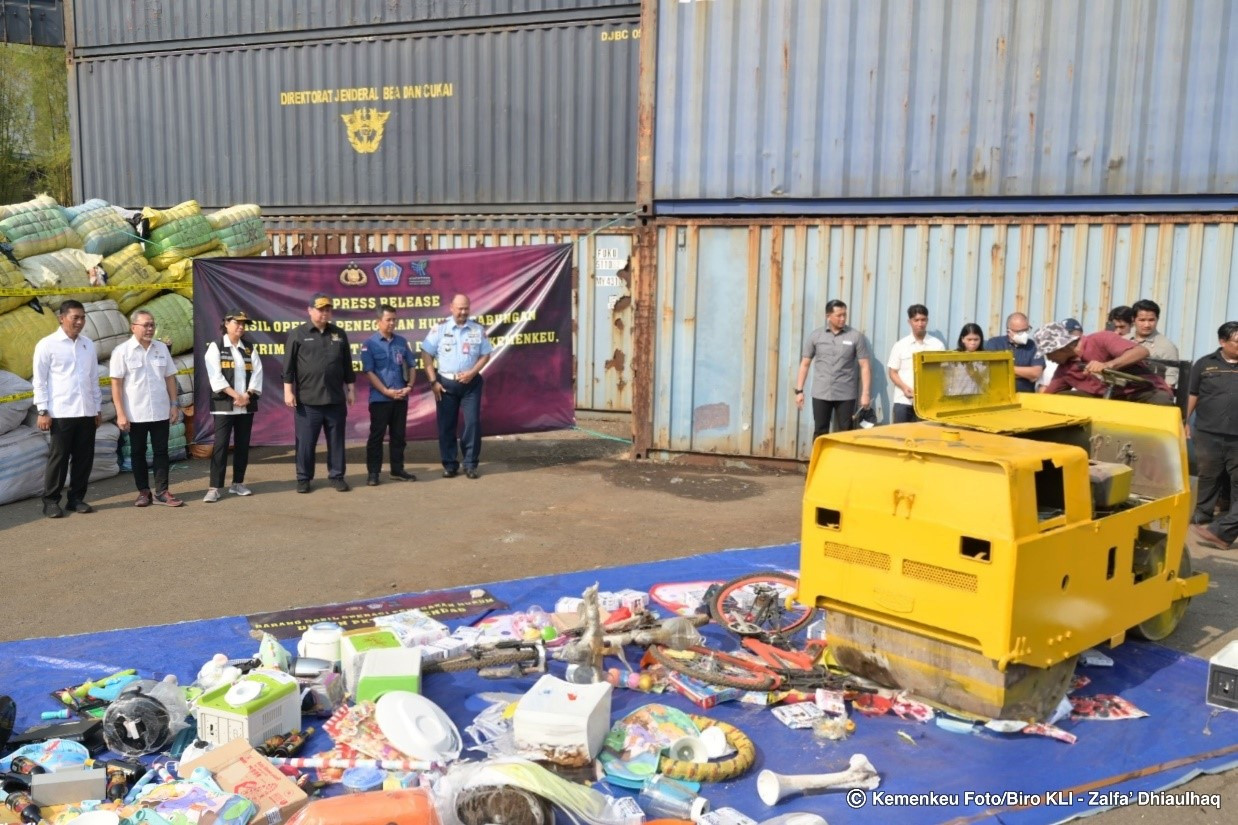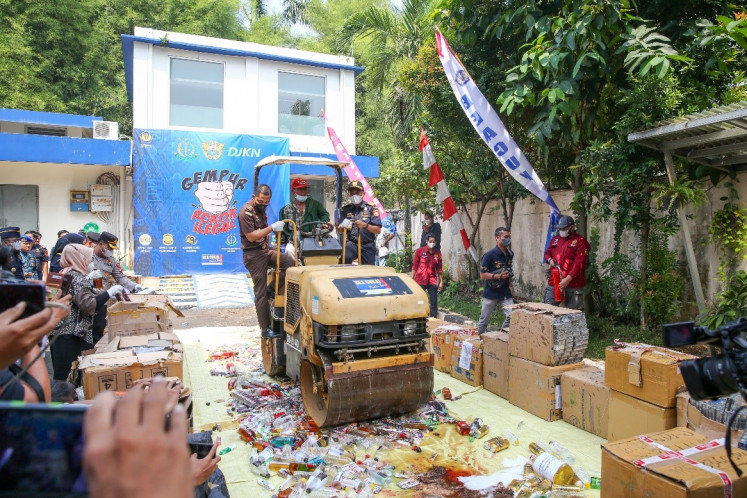Popular Reads
Top Results
Can't find what you're looking for?
View all search resultsPopular Reads
Top Results
Can't find what you're looking for?
View all search results2024 customs and excise policies strengthen 2045 Golden Indonesia Vision
Change text size
Gift Premium Articles
to Anyone
A
ccording to the recent study released by the Central Statistics Agency (BPS) earlier this month, the national economy in the third quarter of 2023 grew by 4.94 percent year-on-year (yoy). While the performance is positive, attention is drawn to the fact that the growth percentage is below the psychological threshold of 5 percent.
With only one quarter left to achieve the national economic growth target for 2023, efforts are actively being made to maintain a growth rate of at least 5 percent, reaffirming the commitment of the Customs and Excise Directorate General of the Finance Ministry to fulfilling the mandate of the State Budget (APBN).
To secure the target, the government has implemented strategic measures, including incentives and assistance packages such as rice assistance, El Niño Direct Cash Assistance (BLT), People's Business Credit (KUR) and housing incentives. The APBN, as a key instrument in managing the national economy, once again plays a crucial role in Indonesia through allocation, distribution and stabilization.
As of October 2023, the performance of the APBN recorded state revenue at around Rp2,240.1 trillion (US$144.81 billion) and state expenditure at Rp2,240.8 trillion. With a deficit of Rp700 billion, the APBN still achieved a primary balance surplus of Rp365.4 trillion. This positive performance is noteworthy amid increasing global risks and uncertainties. Despite this, however, the impacts of global conditions should not be ignored, as spillover effects have the potential to influence the national economy, impacting inflation or even exchange rates.
Customs and excise revenue contributes significantly to the national income, especially in terms of taxation revenue. By October 2023, customs and excise revenue reached Rp220.8 trillion, contributing to government spending of Rp1,572.2 trillion on social protection, farmers, small and medium enterprises (SMEs), education and infrastructure.
Moreover, customs and excise revenue, including import duties (BM), export duties (BK) and excise, is highly influenced by global trade conditions and geopolitical situations. Despite these challenges, the Customs and Excise Directorate General is committed to meeting revenue targets by the end of 2023.
Looking ahead to 2024, the Customs and Excise Policy aims to support Indonesia's vision of becoming a developed country by 2045. The APBN for 2024 is designed to accelerate inclusive and sustainable economic transformation. With a targeted state expenditure set at Rp3,325 trillion, supported by state revenue of Rp2,802 trillion and financing of Rp522 trillion, the APBN aims to achieve a national economic growth of 5.2 percent with inflation maintained at 2.8 percent.
(Courtesy of Finance Ministry)Customs also play a crucial role as a contributor to state revenue, aligning with the goals of tax revenue. The Customs and Excise Directorate General’s revenue target for 2024 is Rp321 trillion, which in turn will contribute to national development agendas such as the construction of the Nusantara Capital City (IKN), which has a budget of Rp40 trillion, and the general election, with a budget of Rp37.4 trillion.
The challenges faced by customs in 2024 include geopolitical tension, global economic pressure and operational issues. The customs office however, recognizes the potential opportunities behind these challenges. Despite the uncertainties, Indonesia's economy is projected to grow by 5.2 percent in 2024, providing opportunities for customs to maximize its role. This can be achieved by focusing on the following aspects: the alignment of business processes and information technology, the simplification of services and collaboration with law enforcement agencies and ministries and agencies.
Furthermore, in response to these challenges and to maximize opportunities, customs is intensifying its efforts to optimize the collection of Tobacco Excise (CHT) through multi-year policies that have an average increase of 10 percent. Additionally, hand-rolled clove cigarettes (SKT) are capped at a maximum 5 percent increase. Efforts are also being made to expand the Centralized Customs System (BKC), done through adding new excisable objects and collecting excise on plastic products and packaged sweetened beverages, while also actively considering economic recovery and purchasing power.
Customs is also aiming to simplify business processes, especially in the field of excise. Digital-based services are being developed, and will integrate e-commerce or marketplace services. Additionally, they conduct operational preparations which include strengthening supervision, combating smuggling through cargo and document inspections and post-clearance audits.
Source: The Finance Ministry












